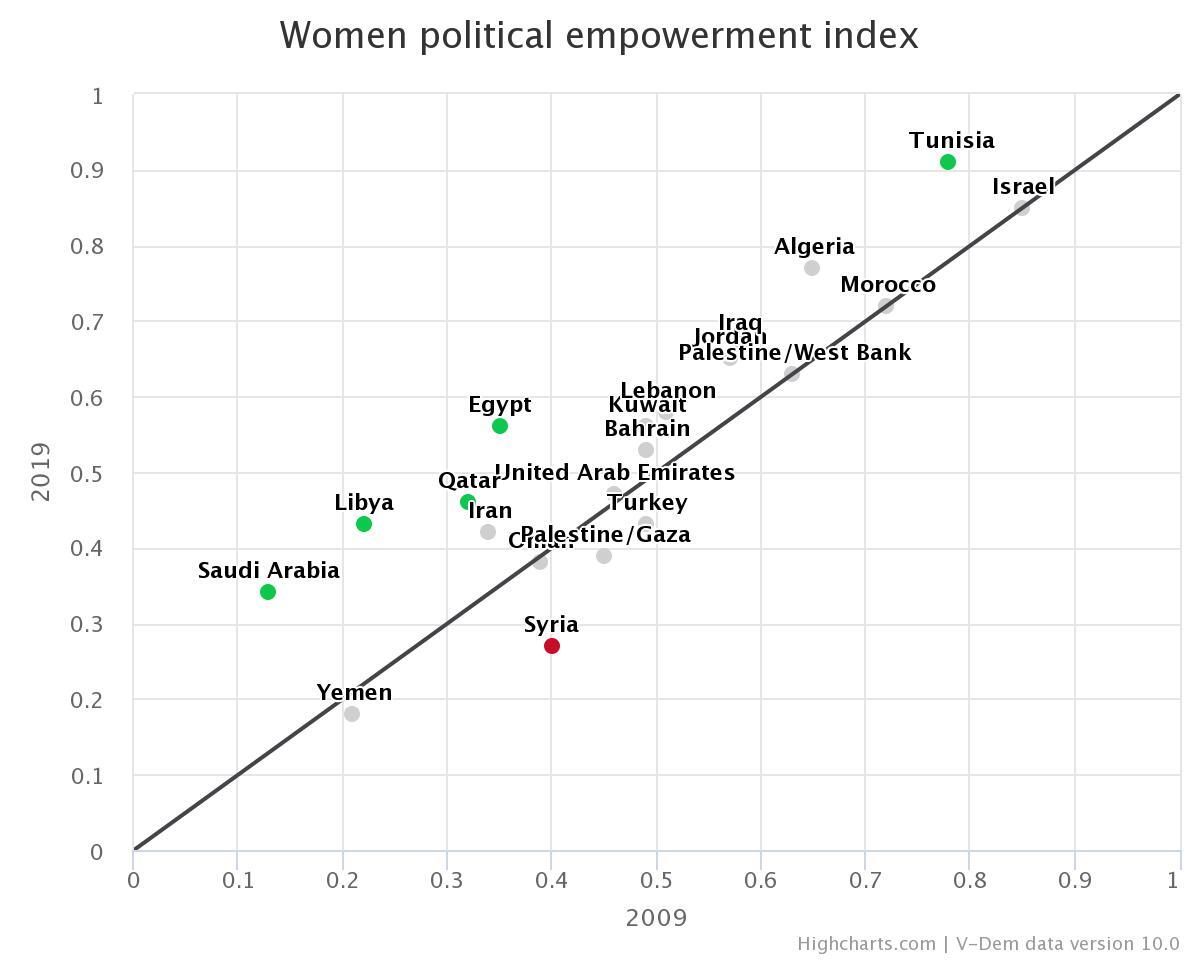International Women's Day and Women’s Political Empowerment in the MENA region
By: Rebekka Ravn Lange-Nielsen
Mar 08, 2021
Countries worldwide celebrate International Women's Day on the 8th of March. The day celebrates women’s social, economic, cultural, and political achievements and raises awareness for persistent gender inequality. This week's graph marks the day by taking a closer look at women's rights and liberation in the Middle East and North Africa (MENA). From the "Women to drive Movement" in Saudi Arabia to the Syrian Womens' Political Movement, activists in the region are fighting for more political participation of women despite challenging and repressive political environments.
V-Dem's Women Political Empowerment Index measures the process of increasing capacity for women, leading to greater choice, agency, and participation in societal decision-making, on a scale from 0 to 1. The graph below compares the Women political empowerment index in the MENA region between 2009 and 2019. While the graph indicates small improvements in most countries, only a handful saw significant increases in the index (green dots). In Syria, the situation for women is significantly worse today when we compare it to the period before the ongoing civil war erupted. The cases of Saudi Arabia and Syria illustrate the divergent developments in the regions.
According to the data, women in Saudi Arabia are significantly more empowered today than ten years ago. Up until 2015, women did not have the right to vote or run for office. In December 2015, Saudi women cast their votes in municipal elections for the first time in the country's history. A total of 17 women were elected across the country. However, the government limited the right to vote to seats in municipal councils, which have no law-making power.
In 2011, the Arab Spring motivated a group of women to organize the “Women2Drive” campaign, resulting in about seventy documented cases of women driving. Up until June 2018, Saudi Arabia was the only country in the world where women were not permitted to drive cars. Despite several attempts to stop the movement, King Salman eventually issued an order that allowed women to drive. While these are significant achievements, Saudi Arabia has one of the lowest scores in women empowerment in the region, and more needs to be done as Saudi women still are legally dependent on a male relative to approve almost all significant life decisions.
The Syrian civil war, which broke out in 2011, has severely diminished women's living conditions, threatening their fundamental civil liberties, safety and health, as illustrated by the precipitous decline in empowerment between 2009 and 2019. As the war continues, few signs raise hopes for improvements. Nevertheless, organizations like the Syrian Women's Political Movement continue their fight for active participation of women in a future democratic Syria.
Thus, while the region has seen some notable improvements in women empowerment, more efforts are required to reduce gender inequality in the MENA region.


